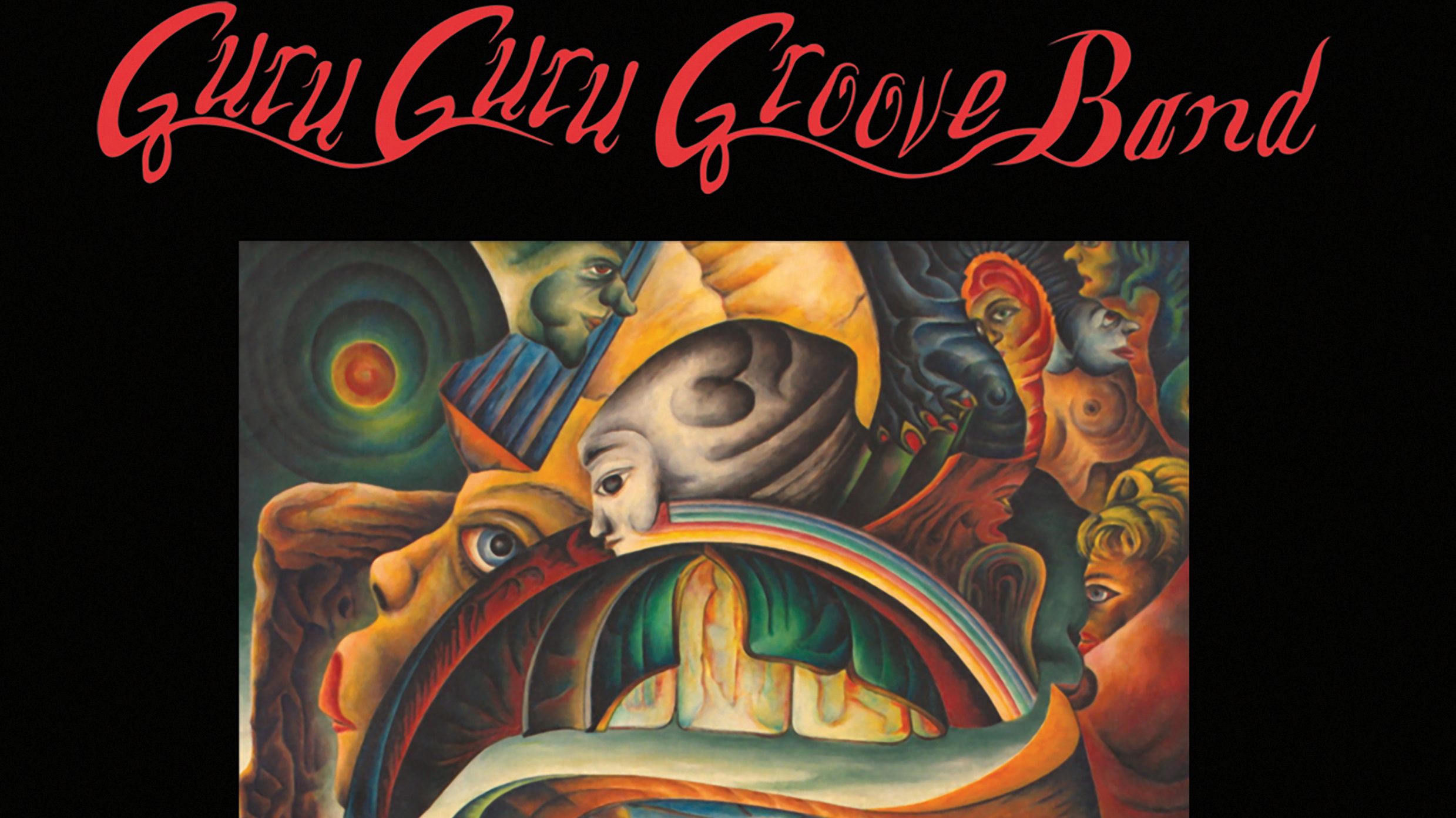There are ostensibly two distinct incarnations of Krautrock presently being employed as reference points today. In its broadest sense it’s a handy catch-all term for experimental German rock. Birthdate? Arguable, but probably 1966. That was the year that Stockhausen student Irmin Schmidt returned to Cologne after a year hanging out with the Velvet Underground in NYC to form the band that would be Can with Holger Czukay. Meanwhile, musical primitives The Monks’ ’66 German tour and the concurrent arrival of LSD both had seismic effects on the country’s burgeoning free jazz community. Whatever, German rock experimentation was at least a toddler when Guru Guru’s future rhythm section attempted to get their ’69 groove on.
Brought into tighter defining focus, krautrock usually refers to the post-Kosmische sound of Neu!: a relentless Autobahn-driving soundtrack with a hypnotically precise metronomic beat. Drummer Mani Neumeier, bassist Uli Trepte and their wildly improvising chums in the GGGB can’t claim to have birthed that particular strand of Krautrock either. In fact, during the single tripped-out, echo-favouring, distortion-laden session that’s captured here, they get nowhere near it.
Latterly, GG found their groove (to an almost counter-revolutionary extent, as newly adopted blues guitar-noodling was to rob their 70 UFO debut of much of its intrinsic krautness), but its lack here is, frankly, crippling. Prior to finding the meandering, early-Hawkwind vibe that came to define them, GGGB produced a floundering sax-heavy approximation of Albert Ayler’s Free Jazz. The sound, meanwhile, is lamentably poor. If the historical significance were greater, or the jam more inspired, you’d forgive it, but they’re not, so you can’t. You hear echoes of this kind of stuff lurking in short, sharp snippets on The Faust Tapes, where it’s seductive in its brevity, but unexpurgated, as here, it’s just self-indulgent, directionless, masturbatory and reputation-killingly bad.

